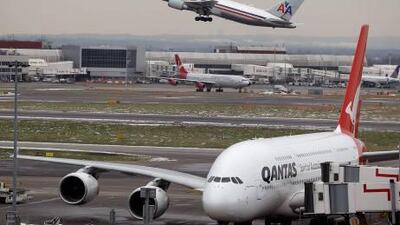By forcing the world's airlines to comply with its Emissions Trading Scheme (ETS), Europe is risking a trade war not only with the US, but also with China, the new global super economy.
Hillary Clinton, the US secretary of state, is understood to have applied strong diplomatic pressure on the European Commission (EC) in a last-ditch attempt to stop the scheme from going through. She is reported to have threatened "appropriate action" if the plan went ahead - which it now has.
Her letter is believed to have listed 42 other countries that also oppose the EU scheme. These include Brazil, Japan and Russia. The US House of Representatives has also passed a bill designed to make it impossible for US airlines to comply with the EU scheme.
China has now become the latest country to add its voice to the global chorus of disapproval for the EU scheme. Xinhua, the country's government-run news agency, is warning of a looming trade war should Europe try to enforce its carbon-emissions scheme for airlines.
However, while Mrs Clinton and China's tough stance has found favour among many of the world's major airlines and their lobbyists, it has angered environmental groups. They claim the airlines are vastly exaggerating the sums of money they are likely to lose as a result of the scheme.
The airline lobby is claiming the new EU ruling could cost the industry billions of dollars. But the EC calculates that the ETS would add very little to the cost of flights - only between US$1.40 (Dh5.14) and $1.80 per air ticket, depending on the duration of the flight. According to Thomson Reuters Point Carbon, the cost to the industry would be less than $1.5bn.
Nevertheless, the subject of airline emissions is a highly emotive one, both for environmentalists and airlines. Environmentally conscious consumers have become increasingly aware that, although air travel is generally calculated to account for less than 5 per cent of the world's total carbon emissions, regular air travel can cause an exponential increase in an individual traveller's personal carbon footprint. There is also a concern that airline emissions are set to grow as more travellers from emerging economies, such as China, begin to take more flights.
The latest consensus forecast figures from the International Air Transport Authority found there would be a total of 3.3 billion air travellers by 2014.
This represents a sharp increase of 800 million air travellers worldwide since only 2009. During the same period, the volume of cargo carried by the international aviation industry will have risen by 12.5 tonnes to 38 million tonnes.
The airline industry is acutely sensitive to the fact that, at present, the only effective way of cutting its growing carbon emissions is to reduce, or at least cap, the total number of flights made worldwide each year.
The EU ruling has sparked a growing fear that the ETS may only be the thin end of a very big wedge of new rules and taxes. The industry dreads the prospect of growing pressure to reduce emissions resulting in rulings such as the ETS and subsequent taxes and other levies to discourage people from frequent flying in the same way many governments have used taxes to discourage unhealthy practices, like smoking.
But a proposed solution to the airline industry's dilemma has come from an unlikely source: Sir Richard Branson, the founder and head of Virgin Atlantic Airways. The Virgin-funded Carbon War Room, a non-profit initiative, made a proposal earlier this month at the United Nations climate talks in Durban, South Africa, that the industry develop alternatives to fossil fuels. So far, airlines have only conducted limited experiments with biofuels.
It has been estimated that fuel costs account for between 25 per cent and 40 per cent of an airline's running costs. Virgin, therefore, believes that the industry is open to fuel-efficient alternatives. It also argues that with only about 1,700 major airline fuel stations around the world, introducing low-carbon fuels - providing efficient alternatives to fossil fuels can be developed - should be far more straightforward than trying to offer it at all the petrol stations serving automobiles.
At the talks, Sir Richard also unveiled a revolutionary new ranking system for the world's airlines based on their future consumption of biofuels.
This sharpening focus on the world's airlines' carbon emissions could soon start to provide interesting opportunities for green investors. Under the new EU rules, airlines will need to account for the carbon emitted for the entirety of every flight taking off or landing in Europe. Providing they file the appropriate paperwork, airlines will initially only be required to pay for 15 per cent of the carbon they emit.
Nevertheless, from 2013 to 2020, Thomson Reuters Point Carbon predicts airlines will buy roughly 700 million permits.
This will not only create a market in airline carbon credits, but also provide green investors in the transport sector with a new environmental and commercial perspective on international airline stocks.

